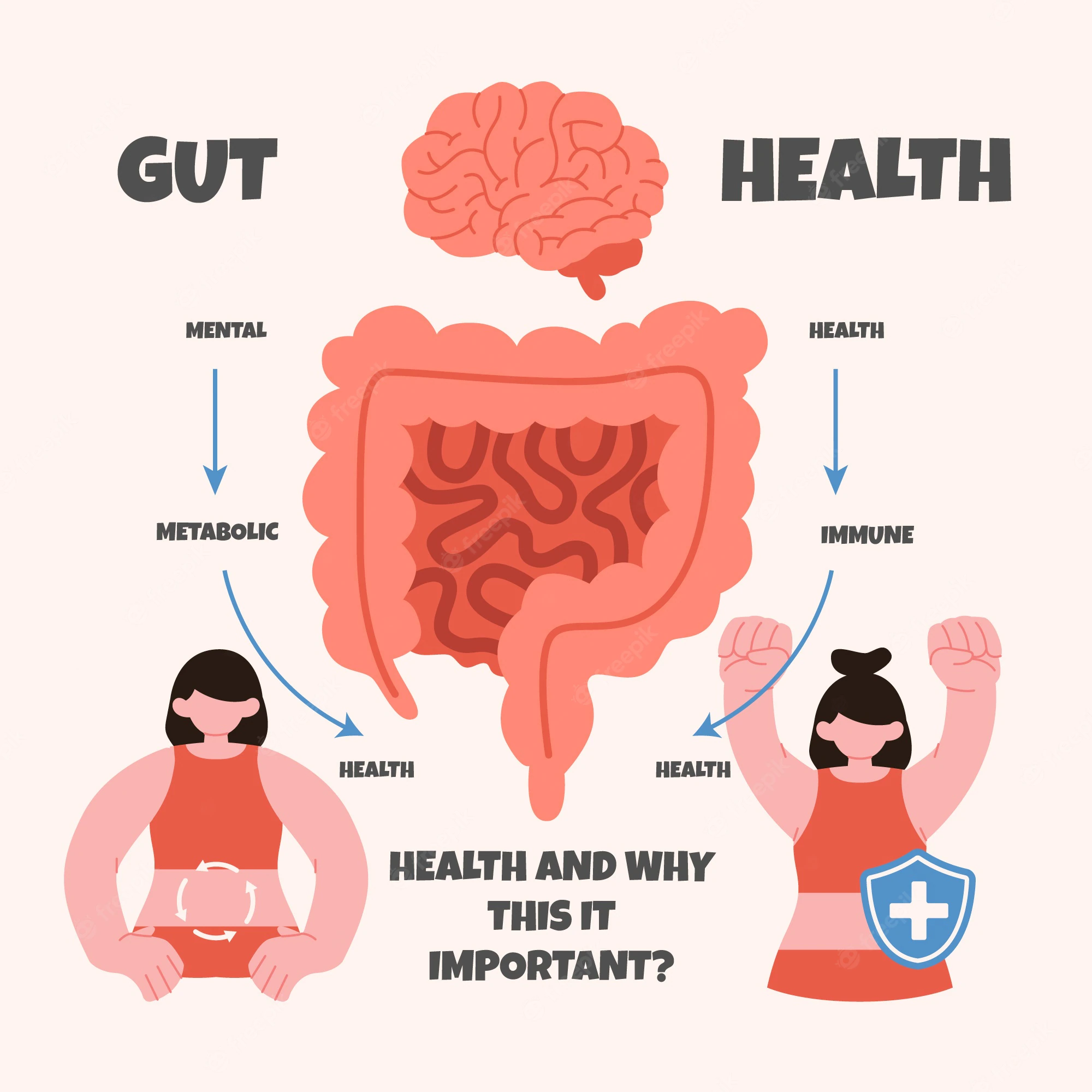
The gut and the brain have a profound connection that goes beyond what we may have previously realized. This connection, known as the gut-brain axis, is rooted in the fact that the gut and the brain are formed from the same tissue during fetal development. This intricate relationship between the gut and the brain plays a crucial role in our overall well-being, influencing both our physical and mental health.
The Significance of the Gut-Brain Connection
The gut-brain connection is a bi-directional relationship, meaning that the health of the gut can impact the brain, and vice versa. This connection is mediated by a network of nerves, hormones, and chemical messengers that constantly communicate between the gut and the brain. The gut is home to trillions of bacteria, collectively known as the microbiome, that play a crucial role in various bodily processes, including the production of neurotransmitters like serotonin and dopamine.
The Role of Inflammation in Mental Health
Inflammation, which is the immune system’s response to injury or infection, plays a central role in both physical and mental health. Chronic inflammation, often triggered by factors like poor diet and stress, has been linked to a range of health issues, including anxiety, depression, brain fog, and autoimmune disorders. Inflammation can disrupt the delicate balance of the gut-brain axis, leading to imbalances in neurotransmitter production and affecting mood and cognition.
The Impact of Diet on Gut Health
The foods we eat have a significant impact on our gut health and, consequently, our brain health. Certain foods can contribute to inflammation and disrupt the gut microbiome, while others can help nourish and support a healthy gut. It is important to be mindful of our dietary choices and opt for foods that promote gut health. Some common inflammatory foods to avoid include gluten-containing grains, industrial seed oils, added sugars, and dairy products. By reducing the consumption of these inflammatory foods, we can create a healthier, more balanced gut environment.
Healing Intergenerational Trauma and Enhancing Mental Well-Being
Trauma, both individual and intergenerational, can have a profound impact on our mental well-being. Research suggests that trauma can be inherited, with the effects passed down through generations. However, just as trauma can be inherited, healing can also be passed down. By addressing and treating our own trauma, we not only heal ourselves but also create a positive ripple effect that can extend to future generations.
Adopting a Holistic Approach to Health and Well-Being
When it comes to achieving optimal health and well-being, it is essential to take a holistic approach that encompasses both physical and mental aspects. This means considering factors such as nutrition, stress management, emotional well-being, and self-compassion. It is crucial to meet ourselves where we are and take small steps towards better health, rather than striving for perfection. By embracing a both-and approach and focusing on nourishing our bodies and minds, we can create sustainable and positive changes in our overall well-being.
Cultivating Mindfulness and Self-Compassion
Cultivating mindfulness and self-compassion is key to promoting overall well-being. Mindfulness allows us to be present in the moment and develop a deeper understanding of our thoughts, emotions, and sensations. By practicing self-compassion, we can foster a kinder and more accepting relationship with ourselves, reducing shame and self-judgment. Research suggests that self-compassion can also lower inflammation levels, further supporting our overall health.
Harnessing the Power of Breathwork
Breathwork is a powerful tool that can help regulate the nervous system and promote overall well-being. By engaging in various breathwork techniques, such as deep belly breathing or box breathing, we can activate the parasympathetic nervous system, which is responsible for our rest-and-digest state. Breathwork can help reduce stress, promote relaxation, and improve emotional balance. Integrating breathwork into our daily routines can be a simple yet effective way to support our mental and physical health.
Embracing Individualized Care and Functional Medicine
Each individual is unique, and their health journey should be approached with personalized care. Functional medicine emphasizes individualized treatment plans that consider a person’s unique genetics, lifestyle, and health history. By working with a functional medicine practitioner, individuals can gain a deeper understanding of their specific health needs and receive personalized recommendations tailored to their well-being.
The Path to Healing: Finding Balance and Resilience
Healing is a nonlinear journey, and it is important to embrace the process with patience and self-compassion. It is not about achieving perfection or having all the answers, but rather about making consistent efforts to nourish our bodies and minds. By cultivating healthy habits, such as mindful eating, regular movement, and stress management practices, we can build resilience and create a foundation for long-term well-being. Remember, every step towards better health, no matter how small, is a step in the right direction.
Conclusion
The gut-brain connection is a complex and significant relationship that influences our physical and mental well-being. By prioritizing gut health through mindful eating, stress management, and self-compassion, we can optimize our overall health. Embracing an individualized approach to care and adopting healthy lifestyle habits can empower us on our journey towards better gut health, improved mood, and enhanced overall well-being.



